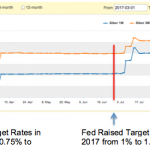Now that you know how the upgrading will work, let’s look at the biggest issue: getting a loan for your condo. Some banks will embrace you, some will reject you, and some will screw you by changing their mind at the last minute. To make sure things go as smooth as possible, here’s how to get that condo loan approved:

Image Credits: Singapore Financial Sector, Marina Bay, Cegoh, Pixabay
The loan application starts with Approval-in-Principle
Table of Contents
Getting the loan for your condo begins with an Approval – in – Principle (AIP). This is a written statement from the bank (or an email), that states the maximum loan you’ll get if you buy property. The AIP is usually valid for one to three months, after which you need to get another one (but it’s usually free; you can walk into any bank and ask for one). Always get AIP before securing the Option to Purchase (OTP). Otherwise, you might put down the option fee, only to forfeit it because you can’t find a suitable loan later.
If you go to more than one bank, you may notice the approved amounts are different. That’s because each bank has its own credit officers, and its own method of assessing risk. However, there are some common factors in determining how much the bank will lend you. These are:
- Your Loan to Value (LTV) ratio
- Your Total Debt Servicing Ratio (TDSR)
- Your age and the loan tenure
- Your credit score
- The location and age of the property
- Your employment status
Banks may interpret your income slightly differently as to what is Fixed income and what is variable income.
Let’s run through each of the factors in order:
1. Your Loan to Value (LTV) ratio
Your LTV ratio is the amount of financing that the bank can provide. An LTV ratio of 80 per cent (the maximum possible for a home loan) means the bank can loan you up to 80 per cent of your property price or valuation, whichever is lower.
Not everyone will get the maximum LTV of 80 per cent. If you have an outstanding home loan, for example, your LTV can fall to 60 per cent. Likewise, older properties, the age of the borrowers, and your credit score can all cause the bank to lower the LTV (see below for details).
2. Your Total Debt Servicing Ratio (TDSR)
The TDSR framework is a loan curb, imposed by the Monetary Authority of Singapore (MAS). Under the TDSR framework, your monthly loan repayment cannot exceed 60 per cent of your monthly income. So if you earn $8,000 a month, your maximum loan repayments are capped at $4,800 a month (Using 3.5% interest as a stress test, your actual interest is lesser than 3.5% and hence so are your monthly repayments.
The TDSR takes into account all your debts, not just your home loan. Your car loan, personal loans, credit card loans, and so forth all factor into your TDSR. For loans with a variable repayment rate, such as credit lines and credit cards, the minimum monthly repayment is used when calculating the TDSR.
This is why it’s important to aggressively pay down your debts, in the 12 to 18 months before you make a loan application. The more debts you can pay off, the more you can borrow to buy your house.
3. Your age and the loan tenure
To get the maximum LTV, you must meet two age-related conditions: first, your loan tenure must not exceed 30 years (for Condo and 25 years for EC) . Second, your loan tenure plus your age must not exceed 65 if you want 80% loan.
For example, if you are 43 years old, and you want to get 80 per cent LTV, you must have a loan tenure of only 22 years (43 + 22 = 65). If you are 23 years old, and you want to get 80 per cent LTV, your loan tenure still must not exceed 30 years; even if your age plus he loan tenure would fall below 65.
At any rate, note that the maximum loan tenure for private properties is 35 years.
If your loan tenure plus your age would exceed 65, or your loan tenure exceeds 30 years, then the maximum LTV will fall to 60 per cent. If you also have outstanding home loans on top of this, the maximum LTV will fall further to 40 per cent.
Wait, what if there is more than one borrower?
If there’s more than one borrower, say you and your spouse, then the banks will use Income Weighted Average Age (IWAA). This is how it works:
IWAA = (Age x monthly income of borrower 1) + (Age x monthly income of borrower 2) / combined monthly income of both borrowers
For example, say you are 47 years old, and earn $6,000 per month. Your spouse, who is going to be the co-borrower, is 42 years old, and earns $2,500 per month. Your IWAA would then be:
(47 x 6,000) + (42 x 2500) / (6000 + 2500) = 45.5, rounded to 46
To get the full LTV of 80 per cent in this scenario, the loan tenure would be capped at 19 years (19 + 46 = 65)
Note that if only one co-borrower has an income, then the age used will be the age of the income earner; there’s no need to do the maths.
4. Your credit score
You can obtain a copy of your credit score from the Credit Bureau of Singapore (CBS), for around $6.42 Depending on your credit score and the corresponding grade, banks will alter the amount they’re willing to lend you.
In general, a credit score of between 1911 to 2000 (Grade AA) means the bank will give you the maximum LTV. A credit score of between 1844 to 1910 (BB) might mean a lower loan quantum. For example, you might get a maximum LTV of 70 to 75 per cent instead. If your credit scores are lower than this, you may be rejected outright.
If you have never used any sort of loan before, you will have no credit score, and you’ll see the grade “Cx”. This means there’s insufficient data to determine how creditworthy you are. If you have high income but a Cx grade, the bank might be willing to extend the full LTV. But if your income is not particularly high, and you’re a Cx, you might get a lower loan quantum.
That said, it’s very easy to go from Cx to AA: all you need to do is take some loans and pay them back almost immediately. For example, if you spend $200 a month on groceries, just charge the $200 to a credit card, and immediately repay it (there’s no interest rate if you do this). After you do this a for a while, you can go straight from Cx to AA. Be careful when trying to do this with personal loans or credit lines though; some banks charge early repayment penalties.
If you’ve had defaults, your grade will probably be DD, or you may see grades like “Hz” and “Hx”. This is a big problem, as you may not be approved for a loan until your credit score improves. The only way to do that is to reliably pay back your loans for the next few years, and try again when your scores are better.
But I’ve been declared bankrupt before, and it’s on the credit report
If you have received your letter of discharge, you can still get a home loan. Most local banks will give you a home loan five years after the letter of discharge, if you maintain a good credit score. Foreign banks tend to wait about seven years. Alternatively, you can try non-banking financial institutions, if you have a poor credit score. Drop us a message at iCompareLoan, and we’ll do our best to help.
5. The age and location of the property
The bank will lower the LTV if the property’s lease is running out. If there is 60 years or less on the lease, for example, the LTV could be lowered to 60 per cent. It may not be possible to get a loan if the lease is on the last 30 years.
Location is mostly a matter if you’re buying abroad. Many banks give lower LTVs for overseas properties, and it’s hard to get a loan for properties outside of capital cities. In Singapore, however, there are certain areas of Geylang for which you can’t get a loan.
6. Your employment status
A 30 per cent haircut is applied, if you have variable income. So if you earn on commissions and make $5,000 a month, you will count as earning $3,500 a month. One possible solution, to raise this amount, is to set up a company and pay yourself from it (thus making you an employee).
If you have recently changed jobs, you may need to wait for a year before your new income is used to calculate your TDSR.
Once you can clear all these factors, focus on finding the best possible deal
There are over 200 financial institutions in Singapore, and well over 50 loan packages on the market at any one point in time. Even if you qualify for all of them, it’s important to pick the one with lowest interest rate. You can browse for the cheapest options on iCompareLoan, and save yourself hundreds of dollars a month in home loan repayments. It just takes a few minutes, and it’s free.
Also, if you’re having problems with loan approval, speak to our mortgage experts. We can negotiate directly with the banks on your behalf, at no cost to you.






